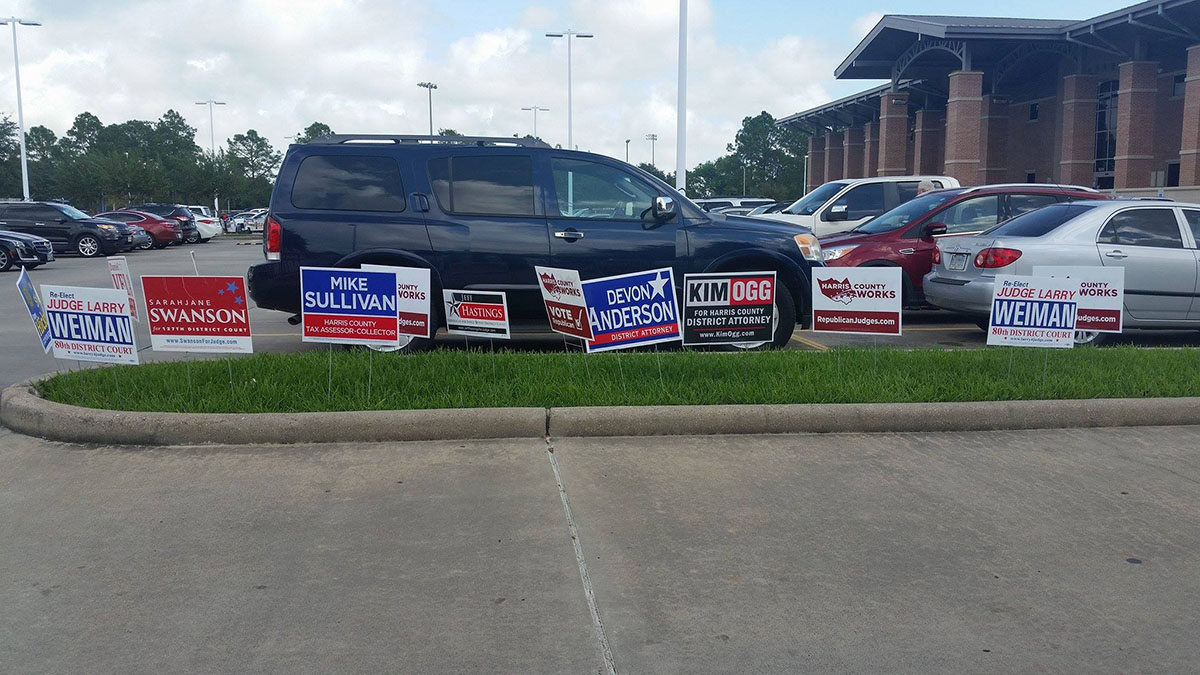
Voters give local elections the cold shoulder
A recent study found that 36.3 percent of eligible voters participated in the 2014 midterm elections, the lowest percentage of the voting-age population since World War II. Another study of 340 mayoral elections in cities around the U.S. found that as little as 26 percent of eligible voters participated in their local elections.
“Local elections do not garner enough attention in mass media to grab interest,” said Andrew Robb, social media coordinator of the Political Science Student Organization and communication major. “A lot of younger people rely on their social media feeds to cover politics, and local politics always seems to be swept under the rug.”
With Election Day being Nov. 8, the majority of news has centered on the presidential race and many eligible voters feel they do not know enough about local candidates and their offices to cast a vote in local elections.
“I honestly feel like I don’t know enough about the local candidates to vote for any of them,” said David Lewis, history major. “I think it is because we see the presidential candidates everywhere we look on TV and the news, and the local candidates just really don’t get the exposure to our daily lives like the national candidates do.”
Aaron Weinschenk, author and researcher of voting behavior at the University of Wisconsin-Green Bay, says that there are a number of factors that lower voter interest in local elections.
“Levels of competition tend to be really low in local races,” Weinschenk said. “In many cases, candidates run uncontested or they win by huge margins. Voters tend to turn out at high levels when there are competitive elections.”
Weinschenk also cited the fact that many local elections are held in different years than presidential and governor races as a reason for low local voting turnouts. He said that most people do not want to go through the trouble of commuting to the polls just to vote for local offices.
Political affiliation can be a deciding factor for voters who are not familiar with the candidates on the local level.
“I always vote a straight-ticket for my party because I feel it’s easier that way,” said Muhammed Khan, accounting major. “I figure that I will probably agree with the stances of most of my party’s candidates for state and local offices, so it saves me from spending a lot of time researching each candidate’s stance on every issue. I do think that the local offices are important, and I personally want people in there that have the same political views as me, which is something that I’m sure most people want.”
William T. Hoston, associate professor of political science, explained that particular issues can also play a large role in local voting.
“In general, party affiliation is important in all elections,” Hoston said. “However, in local elections when voting is issue driven, party affiliation support can fluctuate. School bond issues, for example, often cross party lines. Voting in local elections, in many respects, is more important than voting in national elections because the local realm is where ‘the rubber meets the road.’”
There are many local offices up for election this year. These offices include positions at the state level such as Texas Supreme Court justices, state senators and district court judges. Offices at the county level that are up for election include: district attorney, civil and criminal judges, sheriff, constables and justices of the peace.
Major issues surrounding the state elections include the debate over how much funding should be spent on education and health care, specifically the Affordable Care Act. Several candidates disagree over the impact of the act and whether or not it is worth funding. A major issue surrounding the election of judges this year is capital punishment, and candidates’ opinions vary on when it should be applied.
Given the small voting pool of local races, each vote is more impactful than in national elections.
“From public safety, to education, to filling pot holes and job training opportunities, local politicians make decisions that affect our daily lives,” said Chris Carson, president of the League of Women’s Voters. “Local races in communities across the country are often decided by just a handful of votes, so any one voter’s vote could be the difference between election and defeat.”
More information about all of the candidates and offices up for election this year can be found at http://www.vote411.org/.
